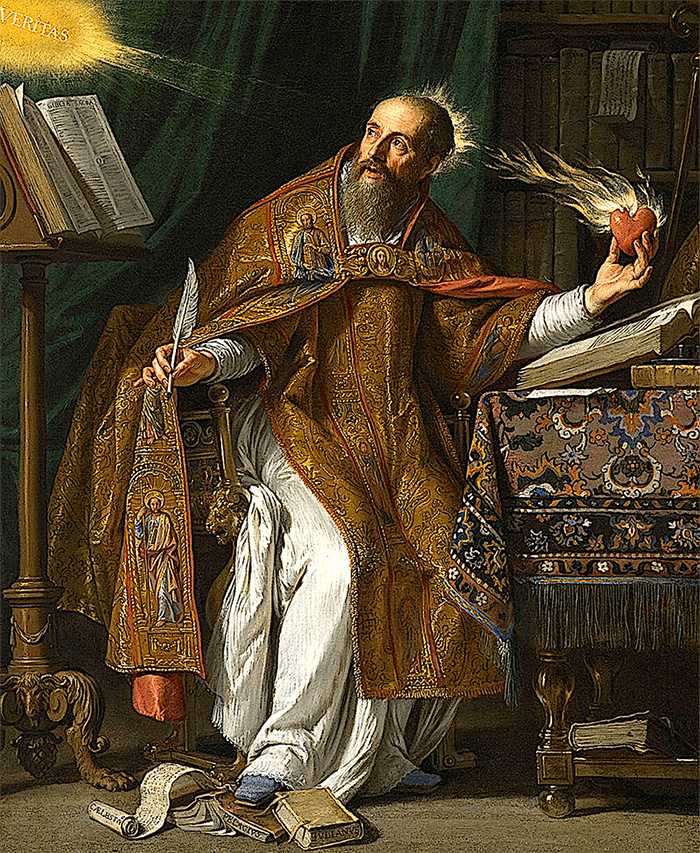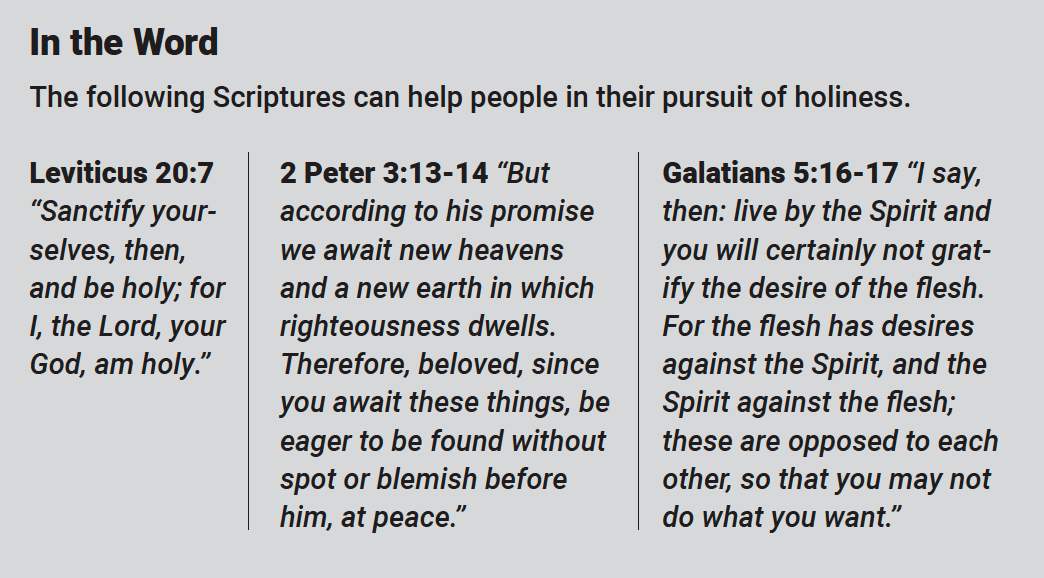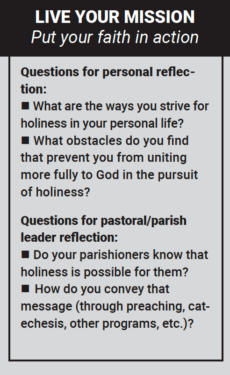PROSPECT HEIGHTS — Augustine of Hippo, the preeminent fifth century philosopher, confessed to keeping concubines, including one who bore him a son.
In his autobiography, Augustine admitted praying, “Grant me chastity and continence, but not yet.” Still, this self-described “slave of lust” pursued holiness. In the year 386 he converted to Christianity, due in large part to the faith of his mother, St. Monica. He went on to become a celibate priest.
After death, he was canonized as St. Augustine, whose teachings influenced Western philosophy and Christianity itself.
But holiness, or rather the pursuit of it, is not an exclusive endeavor of saints. God calls everyone to that standard. “Be holy,” God says, “for I, the Lord, your God, am holy (Lv 20:7).”
In a 1999 letter to clergy in the U.S., St. Pope John Paul II referred to the Second Vatican Council’s Dogmatic Constitution on the Church, which stated, “To be holy is to be like God and to glorify his name in the works which we accomplish in our lives.”
To be God-like can be an intimidating goal, considering our human weaknesses.
But, to conclude holiness is impossible is to believe a lie from Satan, said Father Chris Heanue, rector of the Co-Cathedral of St. Joseph in Prospect Heights.
Thus, Father Heanue suggested practical ways for the mortal being to be holy. First, take one day at a time, striving each day to “be eager to be found without spot or blemish (2 Pt 3:14).”
Sacraments, especially the Eucharist, draw people closer to God, Father Heanue said.
“The Church gives us the regimen, a routine,” he said. “Mass is offered daily in every parish. The sacrament of confession should be regularly received.
“We come to God to help perfect our imperfections. That’s why we start the Mass by saying, let’s call to mind our sins. We humble ourselves.”
People must also discern if their motives to be holy are to satisfy egos or to fulfill God’s will.
“The question about holiness is really ‘the’ question,” said Father Bryan Patterson, rector of the Cathedral Basilica of St. James in Downtown Brooklyn. “But we don’t discuss it. Instead, we react to all these things going on around us.”
Such were the attitudes of the apostles leading to Jesus’ crucifixion, the resurrection, and the ascension, Father Patterson said.
It wasn’t until the Holy Spirit’s descent at Pentecost that they finally understood their real mission. It wasn’t to govern a restored kingdom of Israel — which didn’t happen — but to carry God’s command to spread the Gospel to the ends of the earth.
“Holiness is being God-centered,” Father Patterson said. “Just read Galatians, Chapter 5, where St. Paul makes it so clear between the ‘fruit of the flesh’ — or the ‘fruit of the ego’ — and the ‘fruit of the Spirit,’ which is God-centeredness.”
Non-clerical Catholics also shared ideas to seek holiness.
Mozart Guillaume, who belongs to Father Heanue’s parish, urged people to pursue goodness, which, he said, is God’s will.
“There is no holiness without goodness,” he said. “Even Jesus said my friends are those who practice doing the will of my Father. You got to be God’s friend.”
Guillaume’s wife, Marie, said being holy is not a day-to-day decision, but instead, one that can be made each minute. “Every second it is hard to stay holy, to follow Jesus, and to be friends with Him,” she said.
Moments of weakness, she added, must be joined with fervent prayer, which is a direct conversation with the Lord. “You’re going to feel the Holy Spirit,” Marie Guillaume said. “That gives you faith that Jesus is listening to you. If you don’t pray, there’s no relationship.”
At Father Patterson’s parish, Camille Ferdinand credited her parents and Catholic school teachers for their examples of holiness during her youth in St. Thomas, the Virgin Islands. Therefore, she said, it’s important to raise children in the faith.
Ferdinand echoed Father Patterson, who said holiness is only possible when people ignore their egos and open themselves to the power of the Holy Spirit.
“It’s a work in progress,” she said. “I mean, you’re never, ever finished with it until we get to the other life.”
Alfie Santos, the Cathedral Basilica’s business manager, said weekly Holy Hour adoration helps him in the journey to be holy, because being in the true presence of Christ in the Eucharist allows him to shed the chaos of life and to hear God speaking to his heart.
“It’s one of those real encounters with God that definitely shakes me,” Santos said.



